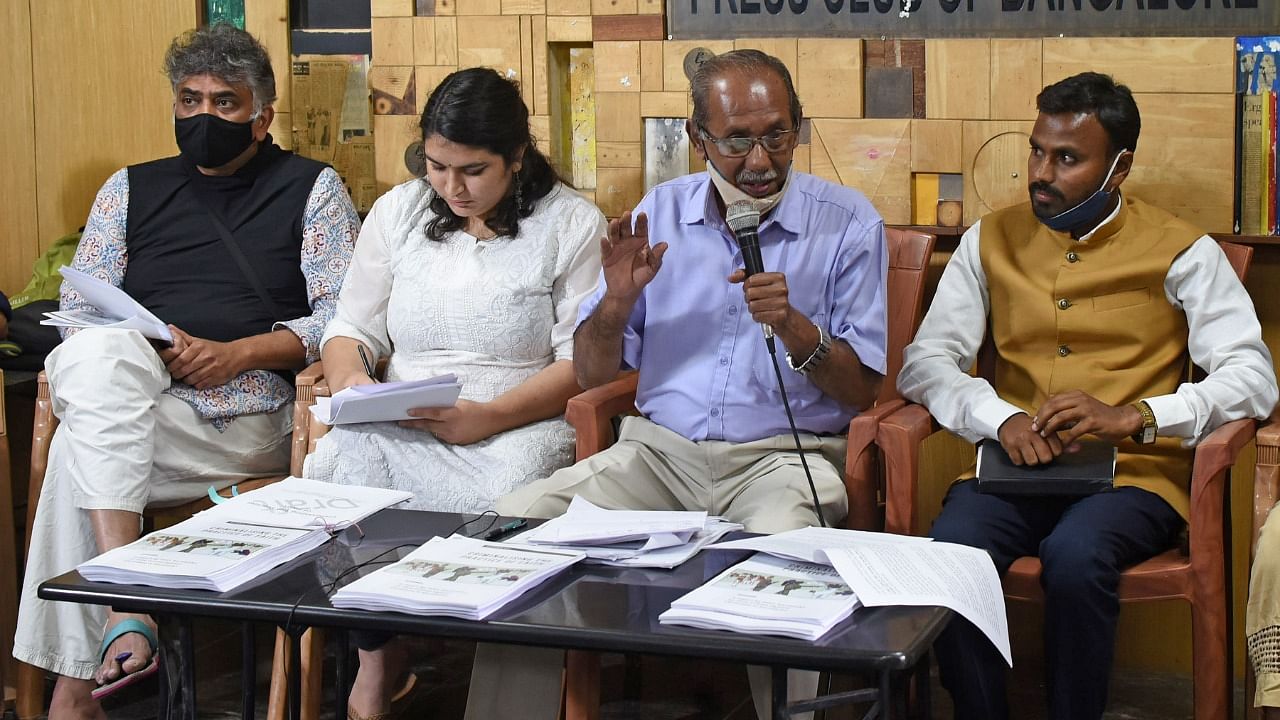
In a report that warns of the rise of communalism, the People's Union for Civil Liberties (PUCL) has documented a total of 39 incidents of hate crimes against Christian communities in Karnataka in the past 11 months and alleged that the police and MLAs colluded with vigilantes.
Titled 'Criminalising the practice of faith', the report identified six patterns of hate crimes ranging from assault on the right to practice religion to casteism and police complicity. It warned that the proposed anti-conversion law will only give carte blanche for excesses by vigilantes.
The PUCL named Rashtriya Swayamsevak Sangh, Bajrang Dal, Hindu Jagrana Vedike as the perpetrators of the incidents that allegedly took place in January and November 2021. It said that in two instances of hate crimes in Karwar (October 4) and Mandya (January 5), the local MLAs "were also named as people who supported the police in targeting Christians" and flagged a new organisation named 'Banjara Nigama' that appears to be “small but rather violent”.
While the report on 39 incidents is based on calls and visits to pastors across the state, the team said there were several other cases that were neither reported in the media nor could access resources or networks for legal and financial assistance.
"In most cases, Christians have been forced to shut down their places of worship and stop assembling for their Sunday prayers. These attacks by Hindutva groups... also rob an entire community of their right to dignity and the right to life," the report said.
Further, it accused the police of colluding with Hindutva groups in "almost every instance of mob violence" studied in the report. "The complicit role of police emboldens a culture of intolerance and bigotry...police have become an arm of social segregators strengthening such Hindutva forces," it said.
The report traced four shifts in the text of the law that has eroded the freedom of religion laws. First, declaring null and void the marriages for the purpose of conversion and vice versa; Secondly, change of forcible conversion from cognizable to a non-bailable offence. Thirdly, the shifting of burden of proof from a person who sought to convert/converted/abetted conversion that he/she/they did not convert by force/allurement or for marriage. Fourthly, the law has moved from requiring to provide an intimation to the district magistrate regarding conversion to now requiring prior permission along with a declaration of conversion in a prescribed format.
The PUCL also slammed media organisations, especially those conducting 'sting operations' “as if someone had been caught doing something illegal” though the activities are an exercise of fundamental rights. "What gives the channels the power to enter into people's homes and treat them as criminals for practising their religion," the report asked.
It demanded the state government implement the Supreme Court directions in the Tahseen S Poonawala Vs Union of India case, regarding cases of mob violence and lynching. The report made a set of recommendations to the state government, police, MLAs, civil society as well as the media.
Reacting to the government’s statement that those not engaged in illegal conversions need not worry about its new bill, PUCL State President Rajendra VJ questioned the hurry of the government to push for the law. “There is a due process in proposing a law. We are presenting 39 cases to show the violations. How can the government, which has the duty to protect its citizens, look away and push for such a law?” he asked.
“The incidents show that the privacy of the people has been violated. Their homes and churches have been invaded and persons assaulted. We believe that justice for this has not come. Parts of similar laws in Gujarat and elsewhere have been stayed by the courts. Given that It’s a shame that the government has chosen to push ahead (with the law),” said writer Aakar Patel, who accompanied the PUCL team.
Watch the latest DH Videos here: